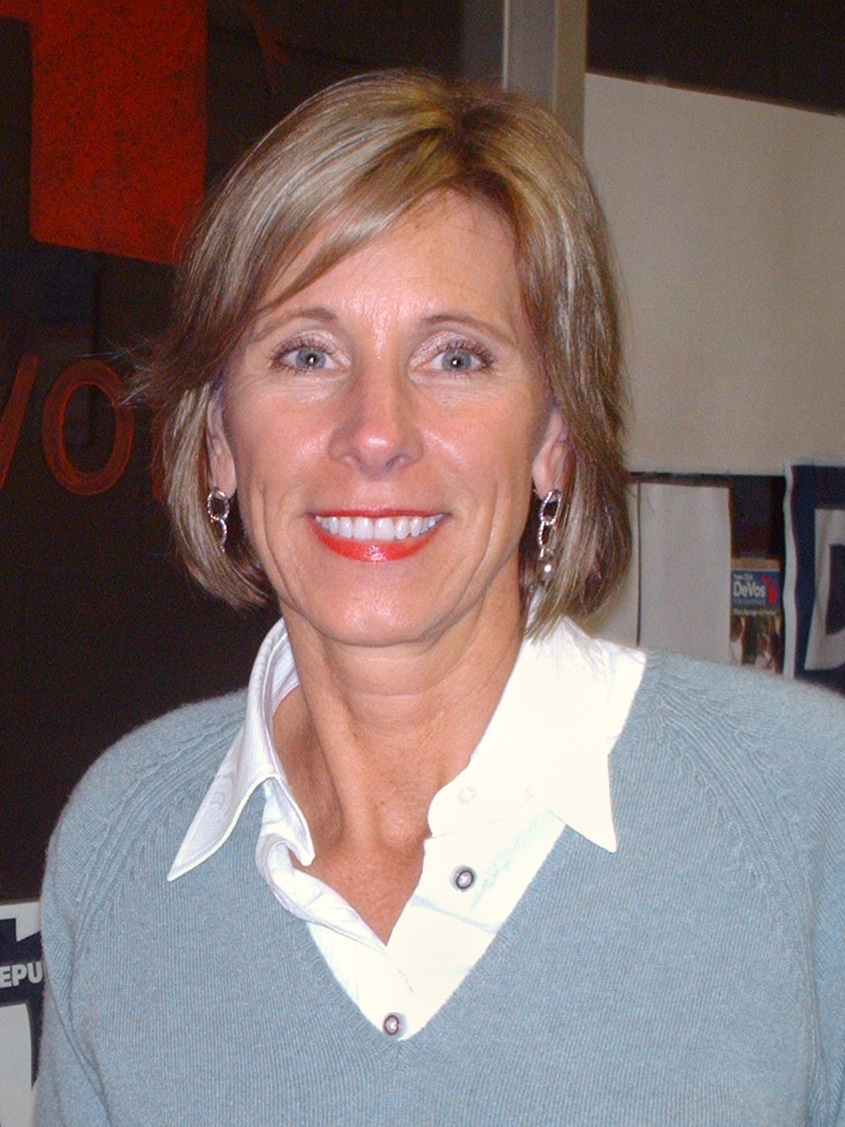In yet another illustration of his selective embrace of conservative precepts, President-Elect Trump has proposed an expanded federal role in school choice. His nomination of Betsy DeVos for Secretary of Education, a long-time leader in the school choice movement, reaffirms this campaign commitment and foreshadows a difficult choice for Republicans in Congress.

Betsy DeVos
On the one hand, DeVos could use the purse strings of the U.S. Department of Education (USED) to significantly expand the school options available to families. On the other hand, a federal role in another area of education policy – traditionally (and constitutionally) reserved for the states – asks conservative school choice proponents to swallow a bitter pill. The new administration will need congressional Republicans to support its ambitions for school choice, but they should not sacrifice federalism on the altar of school choice.
No matter how carefully designed or who is at the helm, introducing a federal role in national school choice policies is a Pandora’s box. Some believe it would be possible to walk the line. Former Bellwether partner and current AEI resident fellow Andy Smarick recently suggested federal policymakers could use the existing federal Charter Schools Program (CSP) as a model for supporting school choice without a wanton expansion of the federal role.
The CSP is probably the best example of how USED has supported the growth of the charter sector and the closest proxy for a parallel federal investment in school choice. But it’s important not to romanticize it. Along with other high-profile federal grant programs (e.g. Race to the Top, Teacher Incentive Fund, Investing in Innovation), the CSP grant has allowed the federal government to weigh in on questions previously reserved for state and local policymakers.
For instance, federal guidance explains the circumstances in which CSP grant winners are permitted to utilize weighted lotteries for student enrollment:
“Weighted lotteries may be used when they are necessary to comply with title VI of the Civil Rights Act of 1964; title IX of the Education Amendments of 1972, Section 504 of the Rehabilitation Act of 1973; title II of the Americans with Disabilities Act of 1990, as applicable; the equal protection clause of the Constitution; or applicable State law.”
The most recent CSP grant protocol also asks states to describe how they will assess charter school applicants on “how the program will enable all students to meet challenging state student academic achievement standards” and “a description of the administrative relationship between the charter school and the authorized public chartering agency.” In evaluating grant applications, USED determines what a strong answer should include. And, in seeking to secure CSP funding, applicants are strongly incentivized to tell USED what it wants to hear.
School choice proponents are wrestling with a parallel set of issues — on student enrollment, standards and assessments, and accountability — and a federal school choice program will demand answers to these questions and more. Should schools participating in voucher programs be permitted to maintain selective admissions? How should we square assessments of student outcomes with the unique ability of private schools to offer a broad range of curricula and instructional models? What, exactly, should the relationship look like between private schools and the entities that authorize their participation in public programs?
Congressional Republicans must consider whether they want USED to decide these questions. They must also consider how USED might decide these questions – not just during the Trump Administration but also in less choice-friendly administrations in the future.
One window into DeVos’ approach may be the model legislation developed by the American Federation for Children, which DeVos founded and led until late 2016. The model legislation calls for open admissions, but is more equivocal on what types of academic assessments states should require (state or nationally-normed) and whether the state department of education or another entity should manage and oversee the program. Any uncertainty of DeVos’ positions is, of course, nothing compared to the uncertainty regarding how future secretaries of education might address these questions.
An expanded federal role opens the door to federal meddling in important, and unsettled, questions on schools choice — questions that are better suited to the experimentation and incrementalism possible at the state level.
There are at least two other reasons for policymakers to question federal involvement in school choice. First, school choice proponents must consider the alternative: School choice continuing to make steady growth through state policy. School choice has expanded significantly in the last decade. Moreover, 32 states have Republican Governors, 25 of which also have Republican-controlled legislatures. School choice already has a viable route toward state-level action.
Last but not least, let’s not forget that the President-Elect’s rhetoric has presaged potential threats to many of our longstanding political bulwarks, including freedom of the press, religious freedom, and an independent judiciary. We are in a political moment that should reinforce our historical commitment to a constrained federal executive.
It is too early to know exactly what Donald Trump and Betsy DeVos have in mind for school choice, but given Trump’s promises during the campaign and DeVos’ unwavering support for school choice, Republicans will likely have to weigh the short-term benefits of a tantalizing policy against the long-term costs to an essential principle. I hope they’ll agree: it’s not worth it.
To read our other coverage of Betsy DeVos, click here.